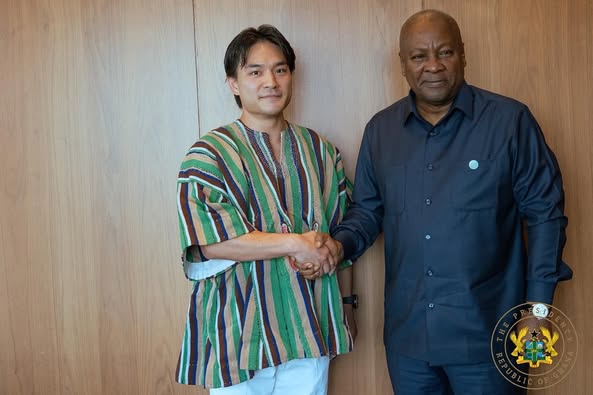Ghana’s agricultural landscape is poised for a transformative shift with a significant $100 million investment from Japanese agritech company Degas Limited. This four-year initiative focuses on deploying cutting-edge artificial intelligence (AI) solutions to revolutionize farming practices and empower smallholder farmers. Announced by President John Dramani Mahama following discussions with Degas CEO Doga Makiura, the partnership signifies a substantial commitment to modernizing Ghana’s agricultural sector and driving economic growth. Degas, renowned for its innovative financing and technological solutions tailored to smallholder farmers, has a proven track record, having already supported over 86,000 farmers across 122,000 acres, resulting in doubled incomes and a remarkably high 95% repayment rate. This new investment builds on this success and aims to leverage the power of AI to propel Ghana’s agricultural sector into a new era of productivity and efficiency.
The core of Degas’s strategy revolves around implementing a suite of advanced technologies. Satellite monitoring will provide real-time insights into crop conditions, enabling farmers to make informed decisions about irrigation, fertilization, and pest control. AI-powered analytics will further enhance these capabilities by processing vast amounts of data to generate predictive models and optimize resource allocation. Precision agriculture techniques, guided by these data-driven insights, will allow farmers to tailor their practices to the specific needs of each field, maximizing yields while minimizing environmental impact. These integrated technologies are expected to significantly streamline operations, enhance productivity, and create a more resilient and sustainable agricultural ecosystem.
Beyond the technological advancements, the investment is strategically aligned with Ghana’s broader economic objectives. By modernizing agricultural value chains, the initiative seeks to improve access to markets for smallholder farmers. Direct linkages between farmers and consumers will eliminate intermediaries, ensuring fairer prices for producers and increasing the availability of fresh produce for consumers. This enhanced market access will generate greater income for farmers, contributing to improved livelihoods and reducing rural poverty. Furthermore, the initiative addresses the crucial challenge of youth unemployment by creating new opportunities in the tech-driven agricultural sector. The introduction of advanced technologies will require a skilled workforce, creating demand for jobs in areas such as data analysis, software development, and precision agriculture management, attracting young talent and revitalizing rural communities.
The anticipated benefits extend beyond economic gains. Increased agricultural productivity is directly linked to improved food security. By optimizing yields and reducing post-harvest losses, the initiative aims to ensure a stable and reliable food supply for the nation. This increased self-sufficiency will reduce reliance on imports, bolstering Ghana’s economic resilience and contributing to national food security objectives. Moreover, the project’s emphasis on sustainable agricultural practices will have positive environmental implications. Precision agriculture techniques promote efficient resource utilization, minimizing the use of water, fertilizers, and pesticides, leading to reduced environmental impact and a more sustainable agricultural system.
This significant investment from Degas marks a pivotal moment in Ghana’s agricultural development. It signifies a commitment to embracing technology as a driver of growth, sustainability, and economic empowerment. The initiative’s focus on empowering smallholder farmers, who form the backbone of Ghana’s agricultural sector, is crucial for achieving long-term success. By equipping farmers with the tools and knowledge to thrive in a modern agricultural landscape, the project will create a ripple effect throughout the economy, contributing to increased incomes, improved food security, and a more vibrant rural economy. The partnership between Ghana and Degas serves as a model for leveraging technology to address critical challenges and unlock the full potential of agriculture.
The timing of this investment aligns with a global push towards technology-driven agriculture. As the world faces increasing challenges related to food security, climate change, and population growth, innovative solutions are essential to ensuring sustainable and resilient agricultural systems. Ghana’s proactive approach to embracing these advancements positions the nation as a leader in agricultural modernization in Africa. The success of this initiative could serve as a catalyst for further investment in the sector, attracting other agritech companies and fostering a dynamic ecosystem of innovation. The long-term impact of this partnership extends beyond immediate economic gains, contributing to a more sustainable, equitable, and prosperous future for Ghana’s agricultural sector and the nation as a whole.


